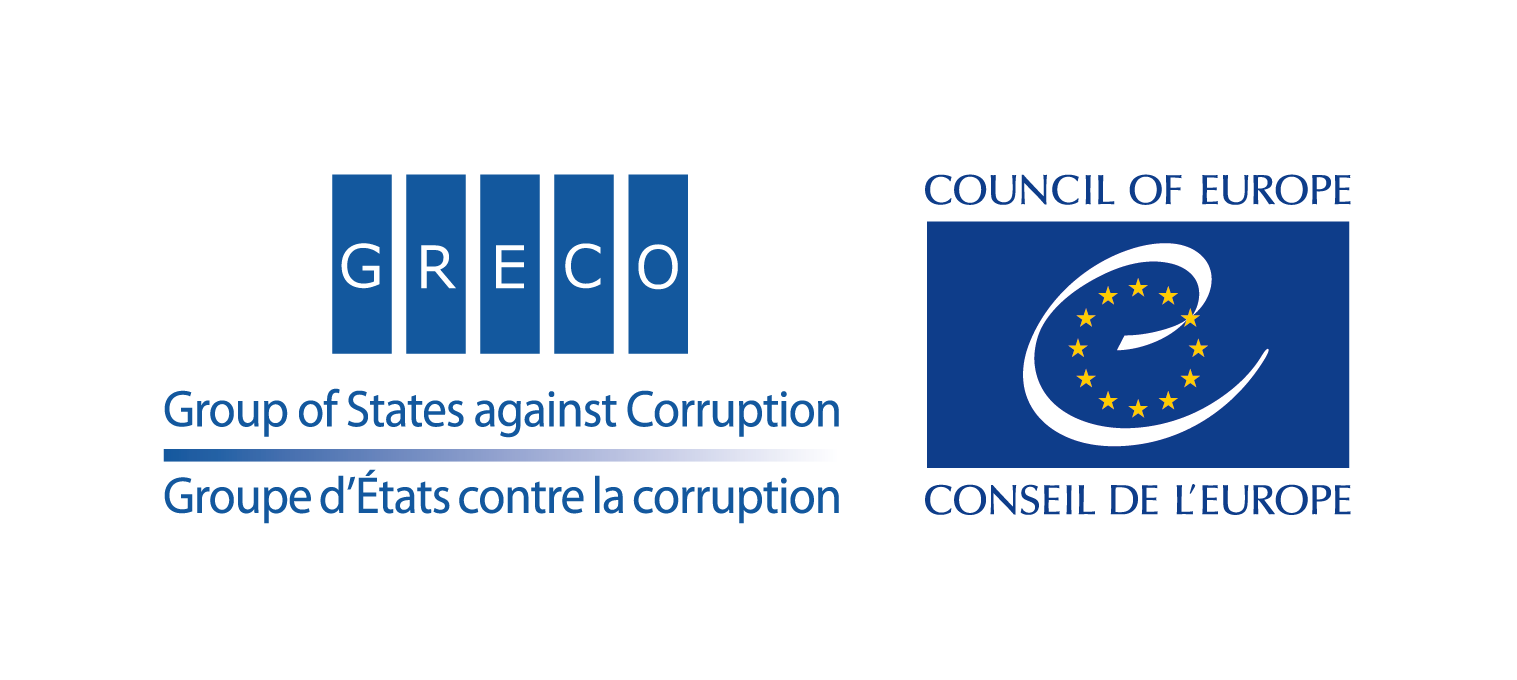Romanian Constitutional Court validates public referendum on justice. On 27 June, the Constitutional Court of Romania (CCR) validated the referendum convened by president Klaus Iohannis that took place along the elections for European Parliament of 26 May. CCR rejected all the complaints formulated, and the decision will be submitted to the Parliament, News.ro reported. President Klaus Iohannis in a press release issued by the Presidency urged the Parliament to enact the results of the referendum on justice as soon as possible and warned the ruling coalition against ignoring the Romanians' vote. The questions answered by the voters on 26 May were related to the prohibition of amnesty and pardon for corruption offenses and a ban on the Government's adoption of the emergency ordinances in the field of crimes, punishments and judicial organization, with the extension of the right to attack the ordinances at the Constitutional Court.
Anti-corruption digest Romania
Romanian Constitutional Court validates public referendum on justice
- Diminuer la taille du texte
- Augmenter la taille du texte
- Imprimer la page
Romania’s Schengen perspective in jeopardy over rule of law
Romania’s Schengen perspective in jeopardy over rule of law. The European Commission said on 13 May that Romania is close to being hit with Article 7 of the EU treaties, the heaviest punishment for a Member State deviating from rule of law fundamentals. Losing the chance to join the Schengen Zone any time soon would be one of the consequences. The Commission sent a letter to the Romanian President, Prime Minister and the presidents of both chambers of the parliament, on main concerns regarded judicial independence and the effective fight against corruption, including the protection of the financial interests of the EU. In particular, the Commission stressed the recent amendments to the country’s Criminal Code, which risk creating a de facto impunity for high-ranking officials.
- Diminuer la taille du texte
- Augmenter la taille du texte
- Imprimer la page
Chief of Romania’s Ruling Party jailed for corruption
Chief of Romania’s Ruling Party jailed for corruption. The head of Romania's ruling Social Democratic Party (PSD), Liviu Dragnea, has been jailed for corruption after his attempts to appeal an earlier conviction failed. Romania's Supreme Court upheld on 27 May a three-and-a-half year prison sentence against Dragnea. The politician, 56, was found guilty last year of having two party members paid by a state agency for fake jobs. Prosecutors said that by using his influence as a government official, Dragnea procured fake jobs at a child protection agency for two women working for his party.
The women admitted to working for the party while receiving salaries from the agency. Dragnea, who denies any wrongdoing, appealed the initial verdict and was allowed to remain free. The politician was a key figure in the PSD's push for controversial judicial reforms, which have chipped away at the independence of the courts, sparking mass protests in Romania and clashes with the European Union.
- Diminuer la taille du texte
- Augmenter la taille du texte
- Imprimer la page
Romania's president calls referendum to back anti-graft reform
Romania's president calls referendum to back anti-graft reform. On 28 March, President Klaus Iohannis called a national referendum for 26 May, seeking to thwart a drive by Romania’s ruling Social Democrats (PSD) to weaken anti-graft legislation. Thousands of Romanians protested across the country last month after the PSD government passed an emergency decree that critics said chipped away at prosecutors’ independence in one of the European Union’s most corrupt states.
Approved without public debate, the decree was the latest in a slew of legislative and personnel changes by the PSD since they took power two years ago that have raised EU and U.S. concern for the rule of law in Romania. “The PSD continues the assault on justice since coming to power,” the centrist Iohannis told reporters on 28 March.
- Diminuer la taille du texte
- Augmenter la taille du texte
- Imprimer la page
Romania’s Justice Ministry promotes new changes to justice laws
Romania’s Justice Ministry promotes new changes to justice laws. On 22 March, the Justice Ministry sent to the Superior Council of Magistracy for reviewing a list of amendments to the Criminal Code, to the related procedures (Law 135/2010) as well as amendments to law 78/2000 on corruption offenses.
One of the amendments to Law 135/2010 gives Social Democrats (PSD) leader Liviu Dragnea the chance to appeal the case in which he received a two-year suspended prison sentence, which is final. Specifically, one of the amendments provides that cases judged by five judge-panels (set up in the past under irregular procedures, the Constitutional Court decided) can be appealed even if the final sentence was issued and the case was closed - an option that is not possible at this time.
- Diminuer la taille du texte
- Augmenter la taille du texte
- Imprimer la page
EU Commission, Parliament Criticize Romania for Backsliding on Rule of Law
EU Commission, Parliament Criticize Romania for Backsliding on Rule of Law. The European Commission has criticized Romania for backsliding on the rule of law and warned Bucharest to treat fairly Laura Kovesi, the country's former anti-corruption chief who is a front-runner to become the EU's first-ever anti-fraud prosecutor.
- Diminuer la taille du texte
- Augmenter la taille du texte
- Imprimer la page
Romania Files Charges against Former Chief Anti-Corruption Prosecutor
Romania Files Charges against Former Chief Anti-Corruption Prosecutor. A Romanian agency tasked with investigating magistrates - SIIJ - has filed criminal charges against former chief anti-corruption prosecutor Laura Codruta Kovesi and banned her from leaving the country for two months, it said on 29 March. Kovesi is a frontrunner to become the European Union's first fraud prosecutor, despite opposition from Romania's ruling Social Democrats who forced her out of the country's anti-corruption prosecuting unit DNA last year.
The SIIJ was set up by the Social Democrats last year among a slew of judicial system changes, prompting a European Commission warning that Romanian magistrates - judges and prosecutors - were vulnerable to political intimidation. On 29 March, the SIIJ said it has charged Kovesi with taking a bribe, abuse of office and giving false testimony, without providing details of the case. It banned Kovesi, who has denied any wrongdoing, from discussing the case in public. She also cannot leave the country without express permission and must regularly check in with police officials.
- Diminuer la taille du texte
- Augmenter la taille du texte
- Imprimer la page
Romania’s new anti-corruption chief steps down
Romania’s new anti-corruption chief steps down. The interim head of Romania’s anti-corruption agency said on 8 January she was stepping down, citing a “hostile environment”, just as the country took on the EU’s presidency. Anca Jurma had become the head of the National Anti-Corruption Directorate (DNA) after her predecessor Laura Codruța Kövesi — considered a symbol of the country’s fight against graft — was controversially removed at the government’s behest in July 2018.
- Diminuer la taille du texte
- Augmenter la taille du texte
- Imprimer la page
Romanian justice minister's decree pushes back timeline to fight graft verdicts
Romanian justice minister's decree pushes back timeline to fight graft verdicts. Romania's Justice Minister has drafted an emergency decree that allows politicians and others convicted of graft since 2014 in one of the European Union's most corrupt countries to challenge the verdicts handed down by the Supreme Court. The measure would benefit several high-level politicians, including Liviu Dragnea, the leader of the ruling Social Democrat Party, who was ruled out from being prime minister by a 2015 suspended jail term in a vote-rigging case. The measure is the latest in a series of legislative and personnel changes made by the ruling Social Democrats since they took power two years ago. The moves have been seen as threats to judicial independence and could further heighten EU concerns about democratic values in some of the eastern nations among its members.
- Diminuer la taille du texte
- Augmenter la taille du texte
- Imprimer la page
Parliament seeks financial punishment for countries breaching rule of law
Parliament seeks financial punishment for countries breaching rule of law. European Union countries that undermine the bloc’s democratic principles could lose EU funds, under a draft law backed by the European Parliament on 17 January. The bill is seen as a new tool to fight threats to the independence of the courts and corruption in countries like Poland, Hungary and Romania.
- Diminuer la taille du texte
- Augmenter la taille du texte
- Imprimer la page




